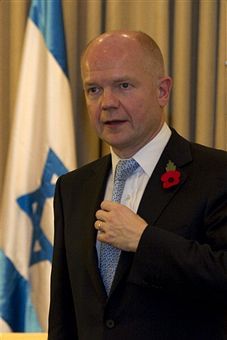 One of the biggest challenges facing the post-Iraq generation of foreign policy
decision-makers, like William Hague and Hillary Clinton, is to balance the pursuit of overseas stability with promotion of the dynamic and sometimes de-stabilising forces that build countries’
long-term stability and make economic and political progress possible.
One of the biggest challenges facing the post-Iraq generation of foreign policy
decision-makers, like William Hague and Hillary Clinton, is to balance the pursuit of overseas stability with promotion of the dynamic and sometimes de-stabilising forces that build countries’
long-term stability and make economic and political progress possible.
This may sound like an academic question but it is a very real change- and not just because the SDSR has made the task of building overseas stability a key government objective.
Take Iraq. After having lost an admirably violence-free and largely fair election, it looks likely that Iraqi Prime Minister Nouri al-Maliki will cling to power and the voter-winner, Ayad Allawi, will be denied a role in government.
If that happens it will be because the US (and Iran) wanted al-Maliki to stay in power, favouring stability that the Iraqi leader has managed to create. His close associates are briefing that he will try to remain in power for the next thirty years, reliant on Tehran’s support as US influence wanes. Over time, al-Maliki’s undemocratic path to power and his authoritarian instincts will help spawn a new generation of opposition, much of which is likely to be violent. The stability that the US (and UK) hopes to gain in the short-term will, in other words, lead to long-term instability.
There are many similar examples – Hamid Karzai is an obvious one. In each case the UK has a choice to make, and it will be tempted to favour a short-term perspective if it can get troops home, costs down and maintain strong counter-terrorism cooperation. Those who could act as a counterweight to this short-termism, the neo-conservatives in the Conservative Party, are either bogged down by departmental business, boxed in by the coalition with the Liberals – or do not have a seat on the NSC.
As William Hague tours the Middle East, he will hopefully see first hand how important it is to balance short-term strategic aims with the sometimes unpredictable but necessary forces of democracy.






Comments